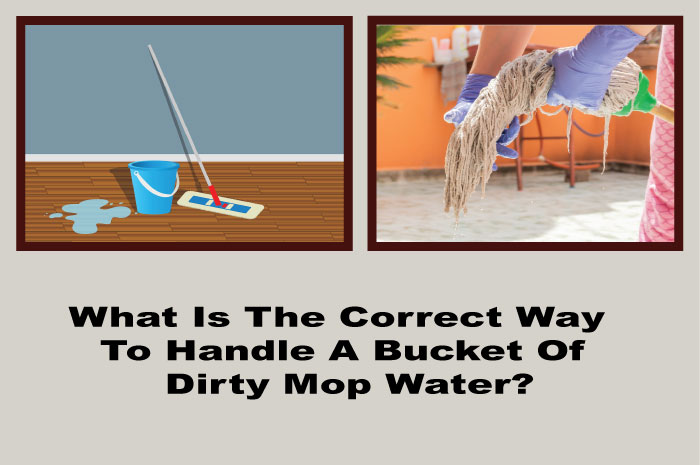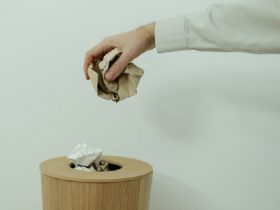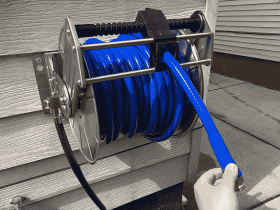Mopping your floors is one of the best ways to clean up all the dust, dirt, and grime. However, the truth is that as you mop, all that dirt and unwanted compounds accumulate within your bucket.
So, what is the correct way to handle a bucket of dirty mop water?
It mostly depends on what kind of chemicals and compounds are in the dirty water. For the most part, you can throw the water in your toilet. However, if you have chemicals, grease, or oil, it makes sense to go to your local waste management facility.
Read more: What is TSP Cleaner & What Other Things You Should Know Before Using It
Understanding what is the draining process
Draining your dirty mop water is a great way to ensure everything is ok. You can dispose of the dirty mop water via your drainage system, usually made out of pipes. Once you throw the water in your toilet or any other system that connects to drainage, you can quickly get rid of it. But as we said, if you have any chemicals or something dangerous, throwing them in the toilet can still cause damage, especially to pipes. That’s why you want to visit a waste management business and eliminate those chemicals rightfully.
Should you drain your mop water into the toilet?
If you’re doing regular cleaning and stuff like that, it makes a lot of sense to drain your mop water into the toilet, and that’s pretty much it. Dirt, dust, or grime will not damage pipes, and they can quickly dissolve once they reach their destination. That’s why draining your mop water into the toilet is the best way to dispose of this dirty water. Not only will it help you save time, but it’s incredibly efficient, and it can offer a massive variety of benefits in the long term.
Is it necessary to disinfect your bucket afterward?
Yes, ideally, you want to disinfect the bucket. Sometimes you will find various remains of chemicals, grease, or anything similar sticking to the bucket. If you want to use the bucket again, you need to disinfect it; otherwise, it will spread those chemicals on the floors. Disinfecting the bucket with hydrogen peroxide or bleach can help a lot. Generally, a disinfectant cleaner will be the right way to go here, and it will undoubtedly provide a great result every time.
Can you use the bucket right after disinfecting it? Or are there any other steps?
The best approach is to disinfect the bucket and let it dry for a bit. Drying it will ensure the bucket is ready to use once again. Thankfully, once the bucket dries off, you can use it again. If you use it while the bucket is still wet, some of those cleaning chemicals might transfer to your mop, so it makes sense to try and avoid that if possible.
Things to avoid when disposing of mop water
- You should never dispose of mop water in your kitchen or utility sink because you might use food there eventually. Some chemicals or unwanted compounds can remain there, so the last thing you want is to encounter mop water remnants in that location.
- Don’t collect mop water into a plastic bag because it’s straightforward for those bags to break. When that happens, it can be a problem since you’re randomly infecting the current location with contaminants.
- If there’s a lot of dirt or grime inside your mop water, don’t throw it in the toilet all at once. It can lead to clogging problems and potential plumbing issues.
Conclusion
We recommend using these tips to properly handle a bucket of dirty mop water. For the most part, you will be fine if you dispose of the dirty mop water in the toilet. That is unless you have a lot of chemicals and unwanted compounds that might lead to clogging or similar problems. In that case, you want to go to a local disposal center to prevent potential issues that can arise. We hope these tips will make it easier for you to deal with mop water properly!











Leave a Review